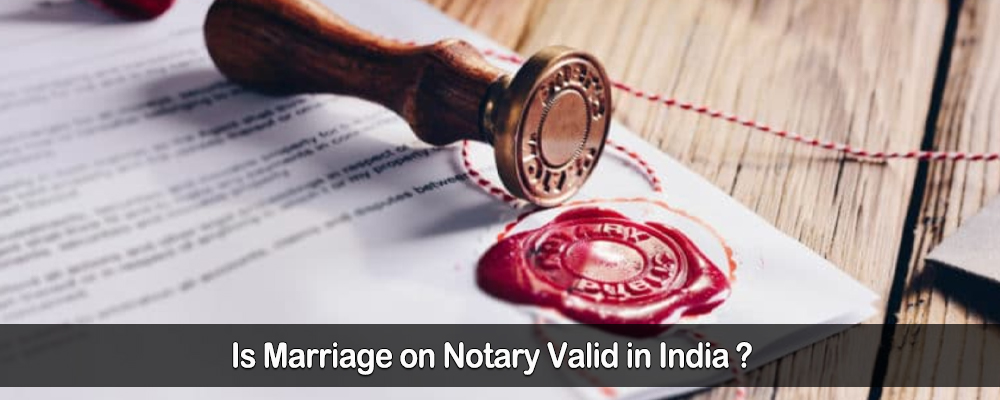In India, marriages are primarily governed by personal laws based on religious customs and traditions. As of my knowledge, as of September 2021, a marriage solemnized under the Special Marriage Act, 1954, or religious ceremonies recognized by personal laws are considered legally valid. However, it’s important to note that laws can change over time, so it’s advisable to consult with a legal expert or refer to the most recent information for accurate and up-to-date details.
Regarding marriage on Notary public, it’s important to clarify that a notary public is an official authorized to perform certain legal functions, such as certifying documents or witnessing signatures. Notaries do not have the authority to solemnize marriages in India. In India, marriages must be registered with the appropriate government authority to be legally recognized.
To have a valid marriage in India, couples usually follow one of the following processes:
Religious Marriage
If both parties belong to the same religion, they can choose to marry according to the customs and rituals of their religion. For example, Hindus can marry under Hindu rituals, Muslims under Islamic customs, and Christians under Christian traditions. The marriage should be solemnized in the presence of witnesses and with the consent of both parties.
Special Marriage Act, 1954
This act allows individuals from different religions, castes, or communities to marry each other. The couple must give notice of their intention to marry to the Marriage Registrar in their jurisdiction, and after a specified waiting period, the marriage can be solemnized. The marriage ceremony is usually performed at the office of the Marriage Registrar, and both parties need to be present along with witnesses.
Need A Legal Advice
The internet is not a lawyer and neither are you. Talk to a real lawyer about your legal issue

After the marriage ceremony, it is crucial to register the marriage with the appropriate authority. Marriage registration provides legal proof of the marriage and is essential for various purposes, such as obtaining legal documents, claiming rights, or settling disputes.
The specific rules and procedures for marriage registration may vary between states in India. Generally, couples need to submit the required documents, such as identity proof, address proof, marriage invitation card, photographs, and witnesses’ details, to the Marriage Registrar. It’s advisable to check the requirements and procedures specified by the local authorities or consult a legal professional for accurate information.
To summarize, marriages performed under the 1954 Special Marriage Act or religious ceremonies recognized by personal laws are considered legally valid in India. Marriage on Notary iOS is not a recognized or valid form of marriage in India. It’s important to adhere to the applicable legal procedures and register the marriage with the appropriate authority to ensure its legal validity.
Any couple who is looking for the best court marriage lawyers can approach Lead India, where they can ask a free question and talk to lawyers to get the best legal advice from the experts.





 Talk to a Lawyer
Talk to a Lawyer